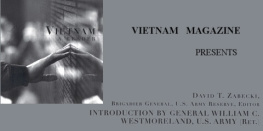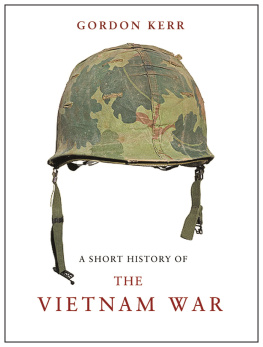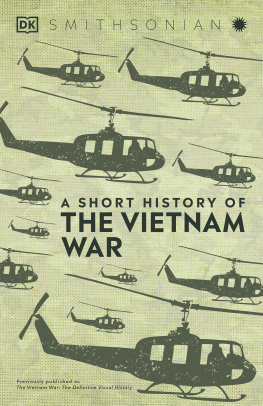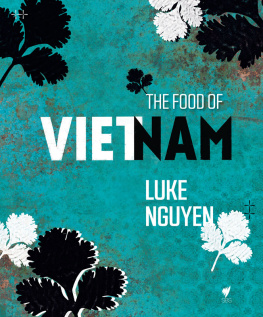A. Short - The Origins of the Vietnam War
Here you can read online A. Short - The Origins of the Vietnam War full text of the book (entire story) in english for free. Download pdf and epub, get meaning, cover and reviews about this ebook. year: 2014, publisher: Routledge, genre: History. Description of the work, (preface) as well as reviews are available. Best literature library LitArk.com created for fans of good reading and offers a wide selection of genres:
Romance novel
Science fiction
Adventure
Detective
Science
History
Home and family
Prose
Art
Politics
Computer
Non-fiction
Religion
Business
Children
Humor
Choose a favorite category and find really read worthwhile books. Enjoy immersion in the world of imagination, feel the emotions of the characters or learn something new for yourself, make an fascinating discovery.
The Origins of the Vietnam War: summary, description and annotation
We offer to read an annotation, description, summary or preface (depends on what the author of the book "The Origins of the Vietnam War" wrote himself). If you haven't found the necessary information about the book — write in the comments, we will try to find it.
The Origins of the Vietnam War — read online for free the complete book (whole text) full work
Below is the text of the book, divided by pages. System saving the place of the last page read, allows you to conveniently read the book "The Origins of the Vietnam War" online for free, without having to search again every time where you left off. Put a bookmark, and you can go to the page where you finished reading at any time.
Font size:
Interval:
Bookmark:
THE ORIGINS OF THE VIETNAM WAR
ORIGINS OF MODERN WARS
General editor: Harry Hearder
Titles already published:
THE ORIGINS OF THE FIRST WORLD WAR
James Joll
THE ORIGINS OF THE ARAB-ISRAELI WARS
Ritchie Ovendale
THE ORIGINS OF THE RUSSO-JAPANESE WAR
Ian Nish
THE ORIGINS OF THE FRENCH REVOLUTIONARY WARS
T. C. W. Blanning
THE ORIGINS OF THE SECOND WORLD WAR IN EUROPE
P. M. H. Bell
THE ORIGINS OF THE KOREAN WAR
Peter Lowe
THE ORIGINS OF THE SECOND WORLD WAR IN ASIA AND THE PACIFIC
Akira Iriye
THE ORIGINS OF THE VIETNAM WAR
Anthony Short
THE ORIGINS OF
THE VIETNAM WAR
Anthony Short

First published 1989 by Longman Group Limited
Published 2013 by Routledge
2 Park Square, Milton Park, Abingdon, Oxon OX14 4RN
711 Third Avenue, New York, NY 10017, USA
Routledge is an imprint of the Taylor & Francis Group, an informa business
Copyright 1989, Taylor & Francis.
All rights reserved. No part of this book may be reprinted or reproduced or utilised in any form or by any electronic, mechanical, or other means, now known or hereafter invented, including photocopying and recording, or in any information storage or retrieval system, without permission in writing from the publishers.
Notices
Knowledge and best practice in this field are constantly changing. As new research and experience broaden our understanding, changes in research methods, professional practices, or medical treatment may become necessary.
Practitioners and researchers must always rely on their own experience and knowledge in evaluating and using any information, methods, compounds, or experiments described herein. In using such information or methods they should be mindful of their own safety and the safety of others, including parties for whom they have a professional responsibility.
To the fullest extent of the law, neither the Publisher nor the authors, contributors, or editors, assume any liability for any injury and/or damage to persons or property as a matter of products liability, negligence or otherwise, or from any use or operation of any methods, products, instructions, or ideas contained in the material herein.
ISBN 13: 978-0-582-49081-9 (pbk)
BRITISH LIBRARY CATALOGUING IN PUBLICATION DATA
Short, Anthony
The origins of the Vietnam War.
(Origins of modern wars)
1. Vietnamese wars, 19541975. Causes
I. Title II. Series
959.7042
LIBRARY OF CONGRESS CATALOGING-IN-PUBLICATION DATA
Short, Anthony.
The origins of the Vietnam War.
(Origins of modern wars)
Bibliography: p.
Includes index.
1. Vietnamese Conflict, 19611975Origins.
2. VietnamHistory20th century. 3. United States
Foreign relationsVietnam. 4. VietnamForeign
relationsUnited States. 5. United StatesForeign
Relations1945-. I. Title. II. Title: Origins
of the Viet Nam War. III. Series.
DS557.6.S53 1989 959.70432 88-27194
Set in 10/11pt Linotron Times
CONTENTS
With the publication of this, the eighth, volume in the series, the short lull which has followed Akira Iriye's The Origins of the Second World War in Asia and the Pacific is over, and it seems likely that a second wave of volumes is beginning. It is therefore an appropriate moment for the editor to reiterate the aims of the series, and perhaps he will be forgiven for indulging in the first person.
When I first had the idea of editing a series of books on the causes of individual wars long before I found a publisher who was wise enough to undertake the project I was asking myself why it was that academics in other disciplines political science, sociology, psychology, even zoology were prepared to speculate on the causes of wars in general, while historians were inhibited from doing so. T. C. W. Blanning, in his The Origins of the French Revolutionary Wars, discussed shrewdly and amusingly the speculations of anthropologists, ethnologists, sociologists and psychologists. It seemed to me that what historians could contribute were specific analyses of the origins of individual wars, using a knowledge and understanding which the other social scientists would inevitably lack. Historians (whether they teach in departments of History, Politics or International Relations, or are, indeed, outside the academic world altogether) would bring to bear on the problem their scholarship and their research into the history of various countries and societies, and their understanding of the operation of international relations in the immediate, and not so immediate, past. In doing so they would contribute to a revival of what used to be called diplomatic history, by placing it into a much deeper perspective than it had enjoyed in the writings between the wars. That diplomatic history has something to offer in this deeper perspective, which can better be termed international history, can hardly be doubted. Already in 1965 Jacques Godechot referred to the lack of favour which has unjustly been shown towards diplomatic history in recent years (Les rvolutions 17701799, Presse Universitaire de France). The injustice is now being to a great extent eliminated.
To encourage academic historians to provide an objective view of the origins of the wars in fields in which they were specialists seemed to me a worthwhile task. The series could have a double purpose. It would bring to the university public a series of syntheses of the literature on the subject and of the author's individual research and interpretation. It would thus serve on the one hand a strictly academic, scholarly, purpose. But on the other hand, I hoped that the series would contribute a body of writing which would enlighten our understanding of the causes of war in general. Dr David Gillard was kind enough to say in a review in the THES that the series will be of the utmost value to all scholars, politicians, diplomats and journalists with a professional interest in why some international crises are resolved by war rather than by negotiation. If only a very few politicians and journalists read only one or two of the volumes something will have been gained in international understanding.
I felt that the two aims were not contradictory or mutually exclusive. The author would usually view his task in writing the volume as a purely academic one the acceptance of a challenge to get at the truth of one particular historic tragedy. But the very fact that his search was an impartial and dispassionate one would validate his work in the more general context.
Anthony Short's splendid book on The Origins of the Vietnam War takes us from the early days when the American government at first genuinely wanted to mediate between the French and the Vietminh, to the culminating tragedy of full-scale American involvement. Mr Short shows that de Gaulle's government believed Vietnamese freedom could be obtained within the French Union, and was unaware of the significance of the word independence for the emerging third-world countries. The French never used the word independence with regard to Vietnam, and in this respect showed a greater inability to adjust to the post-war world than that displayed by the British. On the other hand Short makes it clear that the Americans (notably Acheson) went through a process of thought with regard to Nationalist China, and the probable ultimate success of communism there, with the Communists exploiting a revolutionary spirit in the midst of the poverty and misery of centuries. But the Americans failed to recognize an analogy between what was happening in China and what was likely to happen in Vietnam.
Next pageFont size:
Interval:
Bookmark:
Similar books «The Origins of the Vietnam War»
Look at similar books to The Origins of the Vietnam War. We have selected literature similar in name and meaning in the hope of providing readers with more options to find new, interesting, not yet read works.
Discussion, reviews of the book The Origins of the Vietnam War and just readers' own opinions. Leave your comments, write what you think about the work, its meaning or the main characters. Specify what exactly you liked and what you didn't like, and why you think so.








